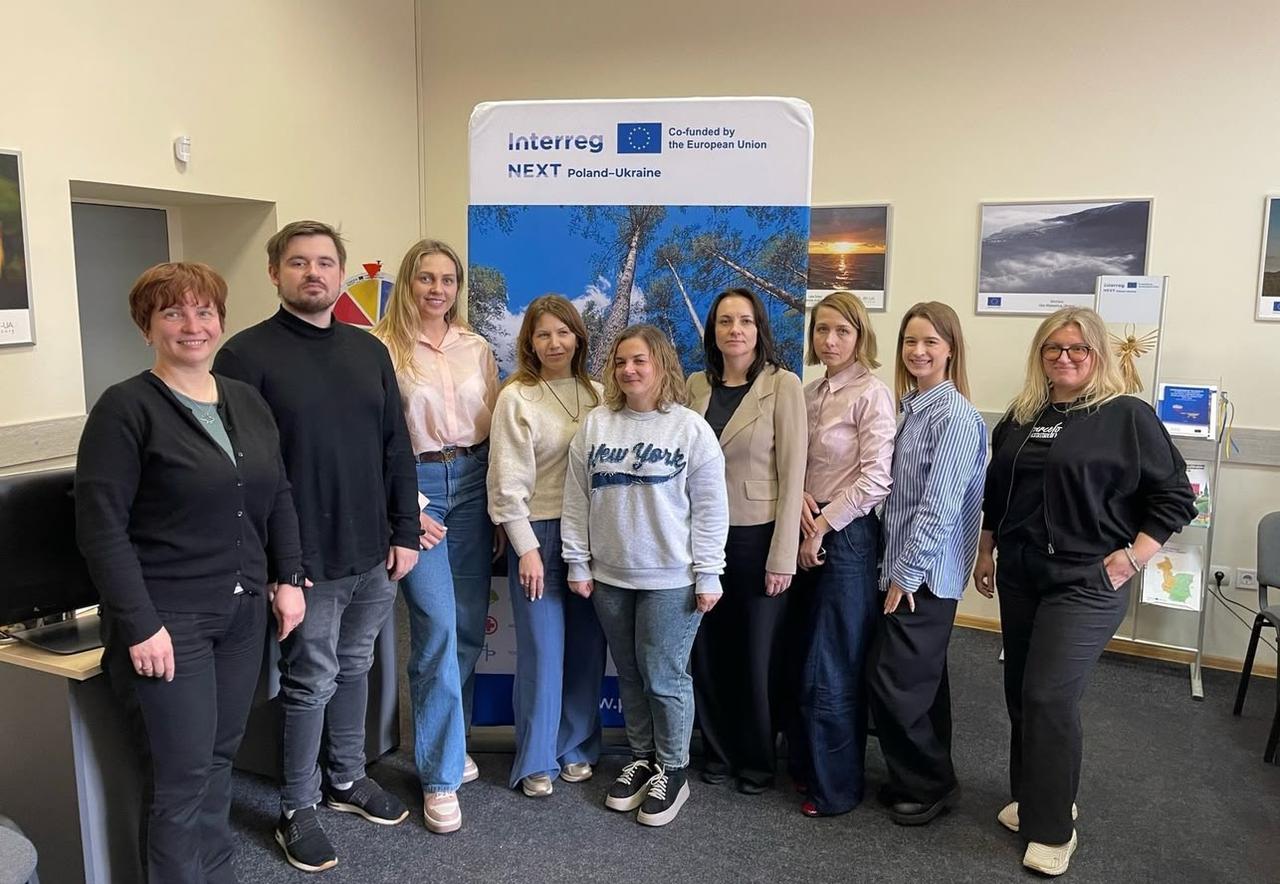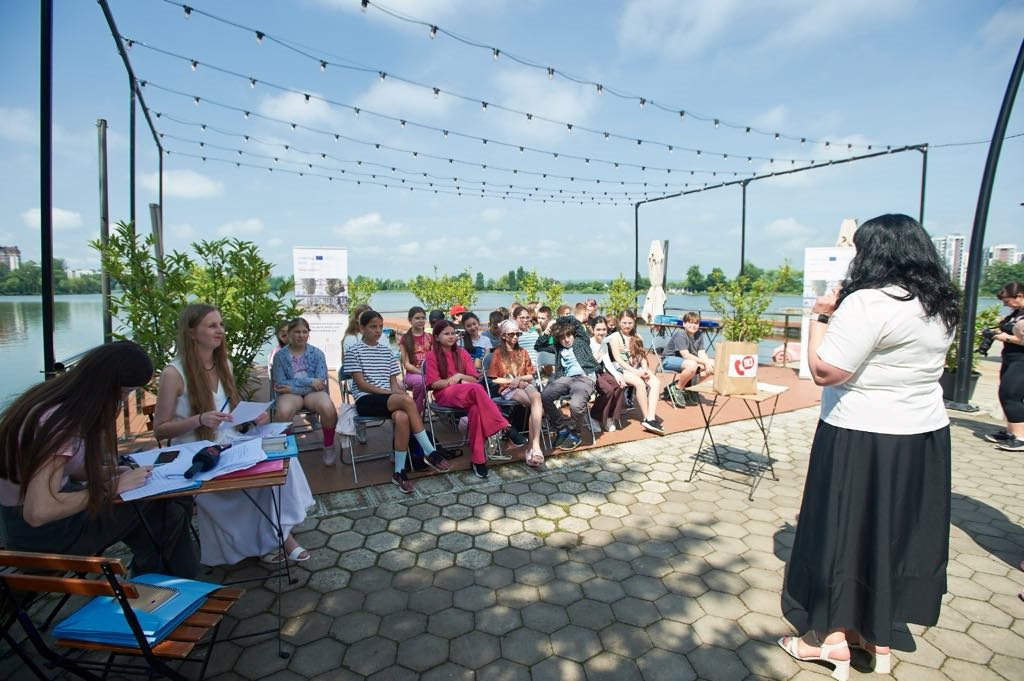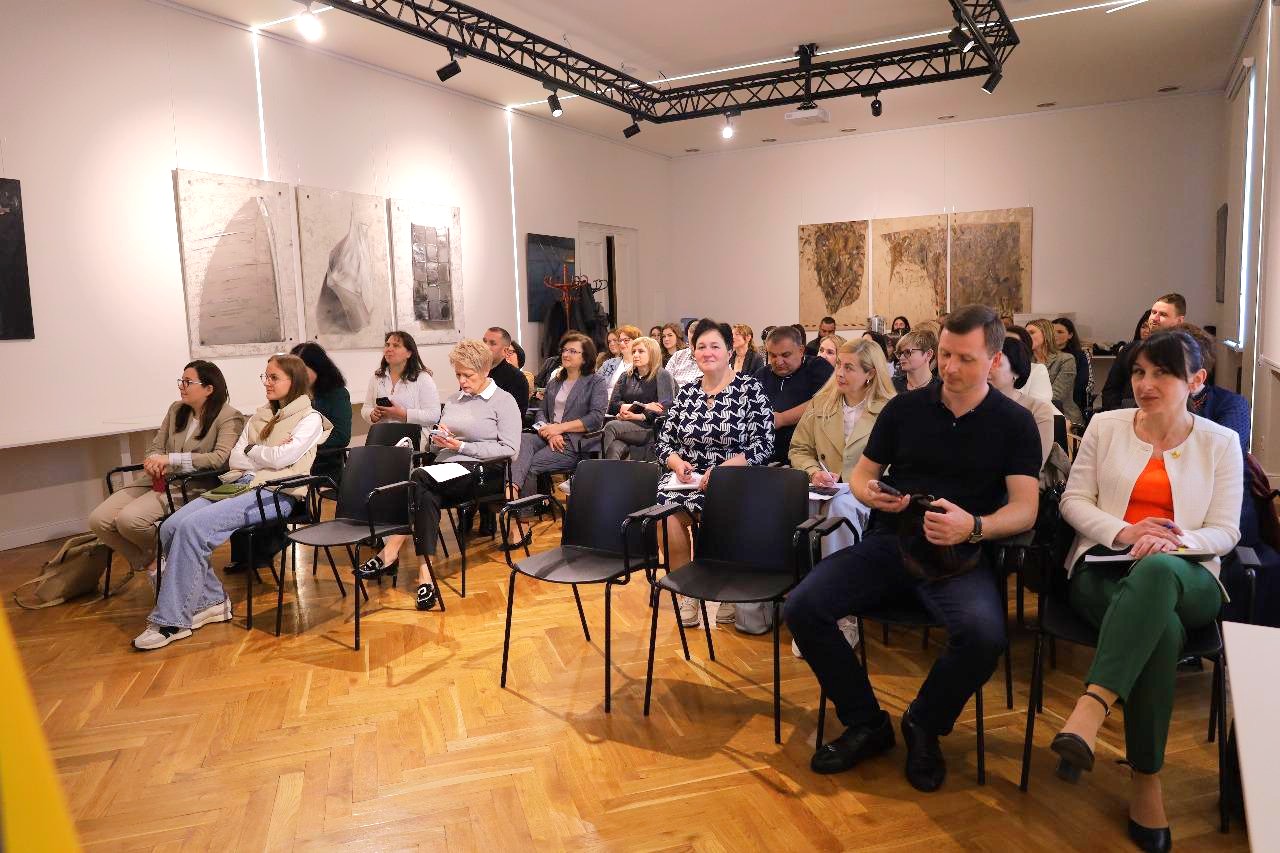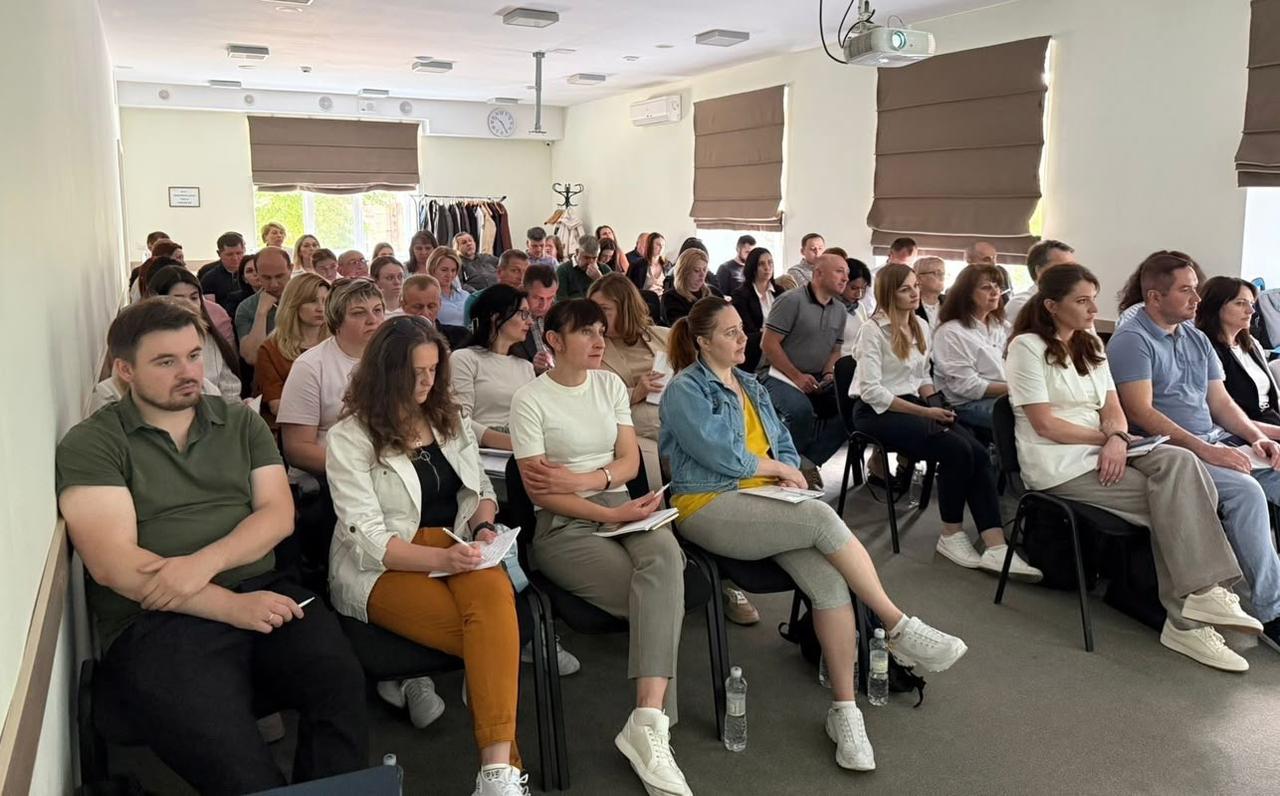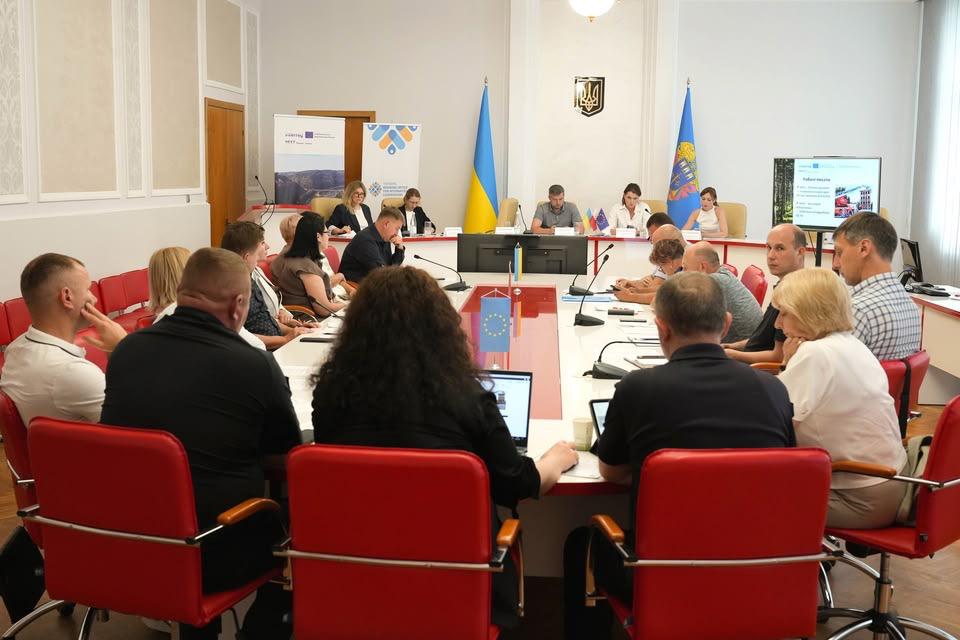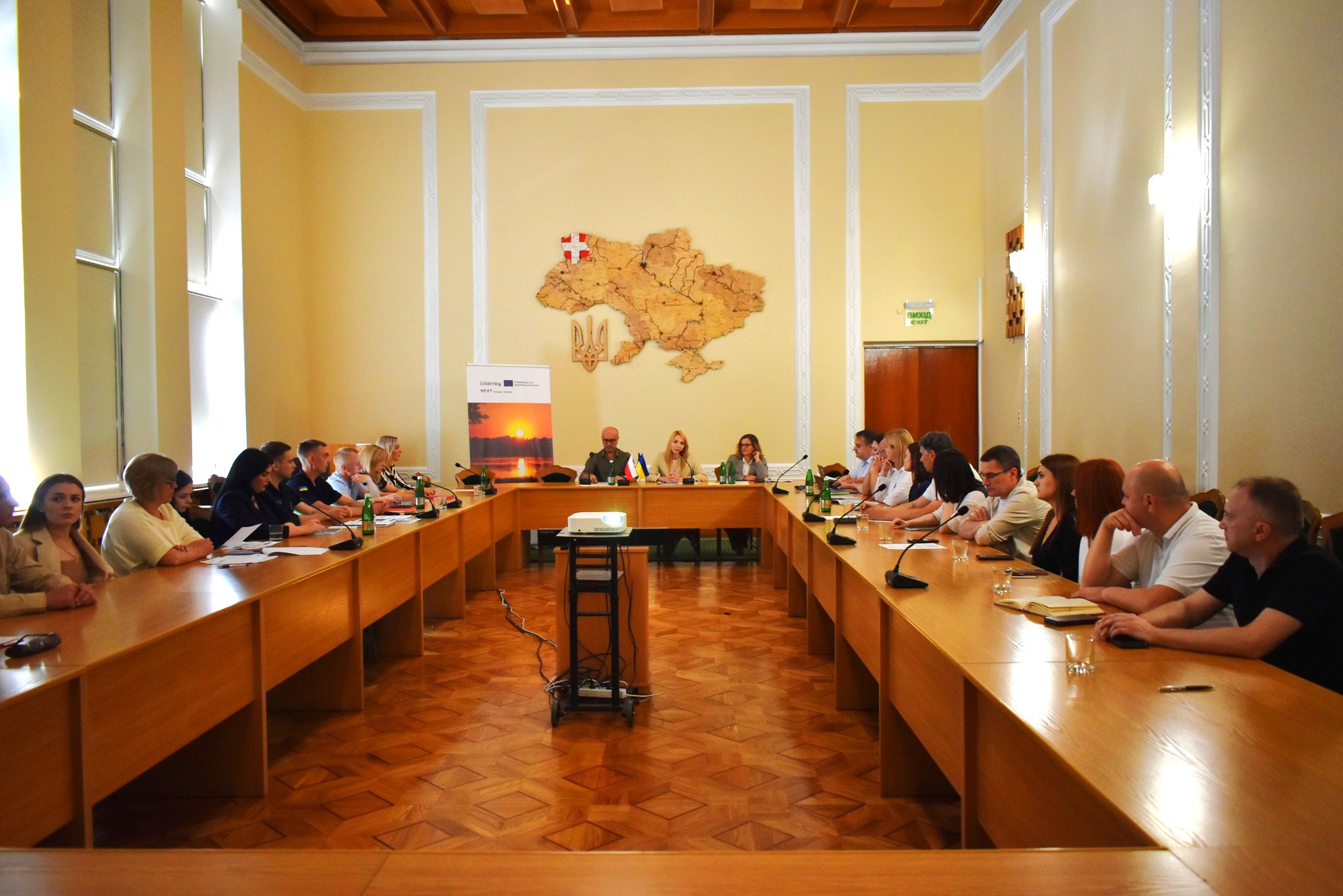The functioning of Regional Contact Points (RCPs) has become a new practice for Ukraine. The idea of having a Programme representative in every region participating in the Programme was strongly supported by all six oblasts administrations as well as local communities. On May 1, 2025, the contact points set up by the regional administrations officially launched their activities in Ukraine. Within the first three months, RCPs experts managed to engage in a number of key processes: they familiarised themselves with local projects, monitored the media, represented the Programme at project events, actively participated in various public events, and even initiated a new meeting format for project partners.
Training in Lviv helped the experts to better understand the Programme’s specifics and opportunities, while also allowing them to get to know one another and form an informal network of local experts across the Programme area.
Since engaging with local project representatives is one of the main tasks of the Regional Contact Points, the idea eventually emerged to organise regular meetings of all project partners in each region. These meetings became informal platforms where project teams could exchange experiences and present their implementation progress, while the Programme and regional authorities received valuable feedback. First such online meeting was held in Zakarpattya (where the idea originated), followed by events in Ternopil and Lutsk.
In Lutsk, project partners meetings even led to the creation of a video report on all regional projects — another example of growing engagement.

Similar events are soon to be held in Lviv, Rivne, and Ivano-Frankivsk. Meanwhile, experts have already provided around a hundred consultations – mostly about new Programme opportunities, particularly the Small Projects Fund call, which is generating the most interest among potential beneficiaries due to its practical relevance and local development potential.
Regional Contact Points are not just “Programme representatives” – they are bridges between opportunities and reality. Their presence in the regions makes European cooperation closer, clearer, and more accessible to those seeking change.
